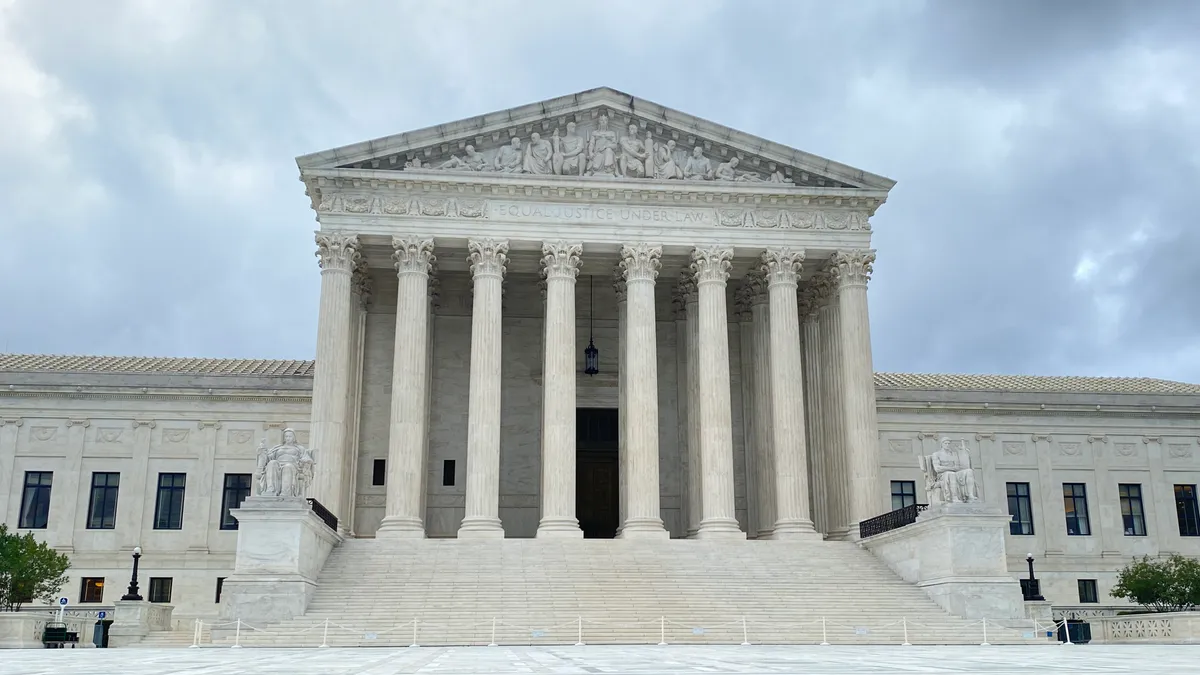The U.S. Supreme Court has been taking on “ever-increasingly important topics for employers,” management attorney Joseph L. Beachboard told HR professionals at the start of his Feb. 27 presentation for the Society for Human Resources Management’s annual Employment Law and Compliance Conference in Washington, D.C.
Some rulings will have particularly notable ramifications for HR and employers, Beachboard, of Los Angeles-based Beachboard Consulting Group, said.
Two cases stand out. In the first, Helix Energy Solutions Group, Inc. v. Hewitt, a Fair Labor Standards Act ruling decided Feb. 22, the Court held that an oil rig supervisor who was paid a daily rate that earned him more than $200,000 a year was entitled to overtime under the FLSA (Helix Energy Solutions, Inc. v. Hewitt, No. 21–984 (U.S. Feb. 22, 2023)). In a 6-3 decision, the Supreme Court rejected the employer’s argument that he was exempt from overtime as a “highly compensated employee” (HCE) performing executive duties.
Under U.S. Department of Labor regulations, an employee may be classified as a “bona fide executive” exempt from overtime if the employee meets a “job duties” test and is paid on a “salary basis” at a preset salary that exceeds a specific level, Beachboard pointed out. The DOL created a separate rule for HCEs who make at least $100,000 annually (upped to $107,432, as of Jan. 1, 2020). The rule relaxes the duties test for executives but confirms that the salary basis and salary level tests apply.
The question in Hewitt was whether an HCE is compensated on a “salary basis” when the employee’s pay is based solely on a daily rate — meaning the employee makes a certain amount if the employee works one day a week, twice as much for two days a week, etc., Justice Elena Kagan explained for the six-justice majority. The six justices said the answer is ‘no.’
Although some have predicted the ruling will open the door to lawsuits, that may not happen because “the reality is that most people making this kind of money are paid on a salary basis,” Beachboard said.
But the case does offer three takeaways. First, employers should not “presume someone is exempt because they are making a lot of money,” Beachboard told the attendees.
Second, employers must follow the rules, he said. “Everyone is trying to be creative with their compensation structures. As you exercise your creativity, make sure you’re hitting those three boxes for your exempt employees,” Beachboard cautioned.
Third, keep an eye on the debate over whether federal agencies, such as the DOL, the U.S. Equal Employment Opportunity Commission and the National Labor Relations Board, have been given too much power to interpret and apply federal statutes, he said. In their dissent, Justices Brett Kavanaugh and Samuel Alito argued that the DOL did not have the authority to create a salary basis test.
Beachboard also discussed a pending high-profile religious accommodation case, Groff v. DeJoy, which “stands to affect everyone in this room,” he said (Groff v. DeJoy, No. 22-174 (U.S. Feb. 23, 2023)). The case is scheduled for oral argument on April 18.
Groff involves a former mail carrier for the U.S. Postal Service. After the Postal Service contracted with Amazon to make Sunday deliveries, he asked for a religious accommodation to be excused from delivering mail on Sundays, Beachboard noted. The post office denied the request, citing undue hardship. The mail carrier resigned and sued, alleging violation of Title VII of the Civil Rights Act of 1964.
The Supreme Court will decide whether Title VII’s nearly 46-year-old standard of undue hardship in religious accommodation cases is still good law. The standard allows employers to reject accommodation requests that have a “de minimis” effect on cost.
This is a very low standard for employers to meet, Beachboard explained. It’s much lower than the Americans with Disabilities Act standard of undue hardship, which requires employers to show a requested disability accommodation would cause significant difficulty or expense, he said.
Given the Court’s recent focus on cases involving religious liberties and its rulings for the plaintiffs in these cases, Beachboard expects the justices to change the current Title VII undue hardship standard to something closer to the ADA’s.
“This will require all of you to do more than has historically been the case in terms of accommodating religious beliefs,” Beachboard told the SHRM audience.













